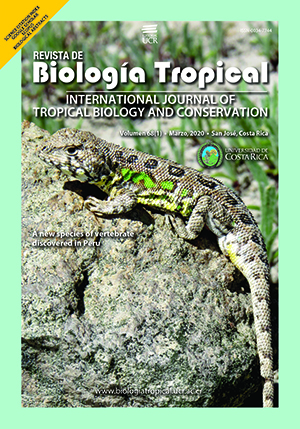Abstract
Introduction: Ecuador, a country of 17 million inhabitants with a medium human development index of 0.75, has a small scientific productivity in relation to its size and population. Objective: To analyze Ecuador publications in the Science Citation Index Expanded, focusing on productivity, subjects, institutions, citations, and trends. Methods: We analyzed scientific publications by authors from Ecuador from 1900 to 2017 in the Science Citation Index Expanded and compared it with other tropical countries. Results: We found 16 document types (7 806 articles). The three most productive institutions were Universidad San Francisco de Quito, Pontificia Universidad Católica del Ecuador, and Escuela Politécnica Nacional. USA and Spain were the most frequent collaborating countries. Most articles were in English and ecology, botany, and zoology were common, but no field produced over 8 % of articles. However, ecology represents 11.3 % of the total citations. The most cited papers in the database were from large international biology and physics projects with minimal participation of Ecuadorean scientists. Article citations occurs mostly after the SCI stops counting. Conclusion: Science in Ecuador is growing but needs to greatly increase collaboration among Ecuadorean institutions to reduce its dependence on foreing projects. However, this study did not include articles published by the hundreds of Ecuadorean journals not covered by the SCI Expanded.
##plugins.facebook.comentarios##

This work is licensed under a Creative Commons Attribution 4.0 International License.
Copyright (c) 2020 Yuh-Shan Ho






